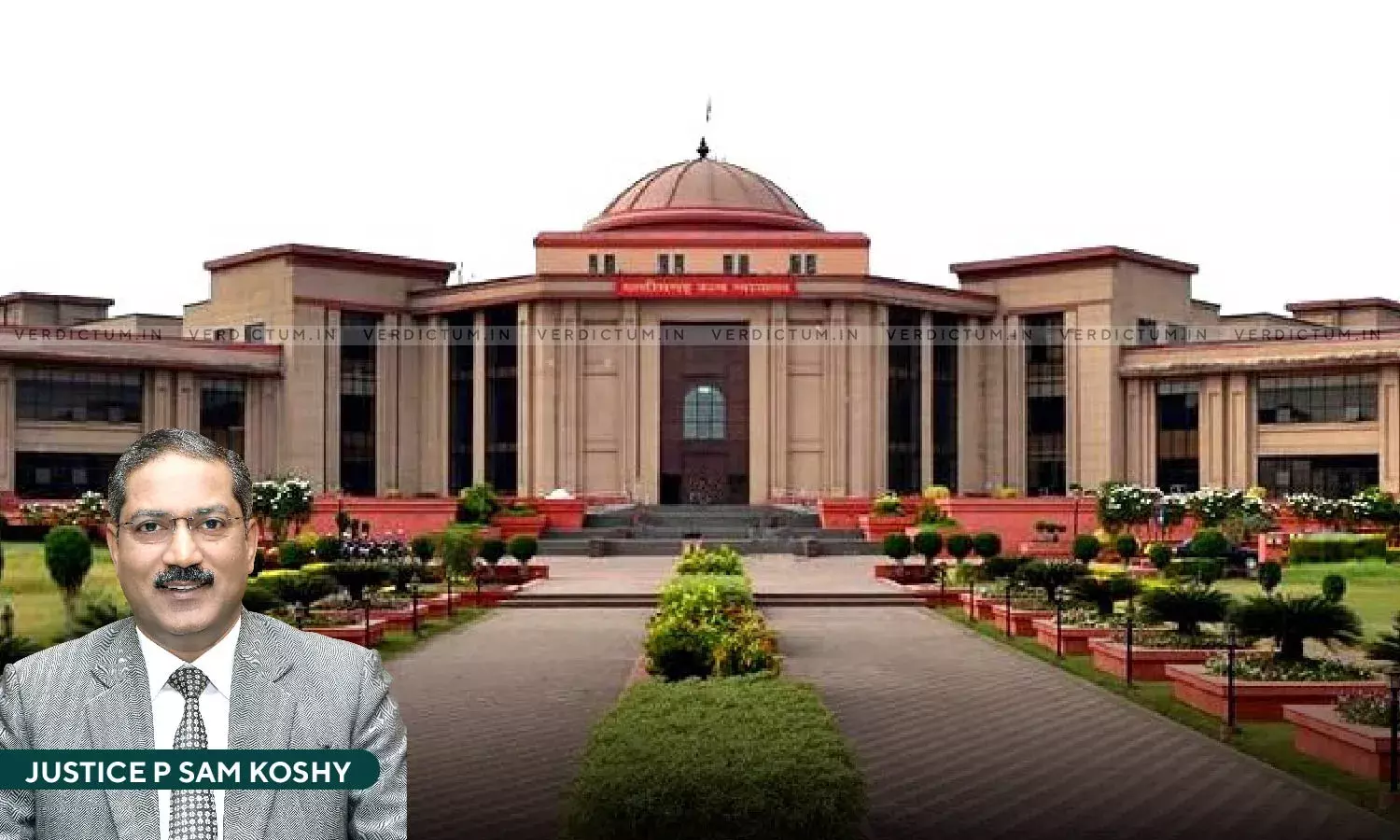Case Under Motor Vehicles Act Doesn't Require Same Standard of Proof As a Criminal Case: Chhattisgarh High Court

The Chhattisgarh High Court has noted that in a case under the Motor Vehicles Act, the standard of proof required is not of the same standard which is required while proving a criminal case and the principles of the preponderance of probability have to be applied.
A bench of Justice P. Sam Koshy of the High Court said, "It is settled position of law that in a case under the Motor Vehicles Act, particularly, when the claim application arising out of an accident is to be decided, the standard of proof required is not of the same standard which is required while proving of a criminal case. It is the principles of preponderance of probability that has to be applied while the claim application under the Motor Vehicle Act."
The deposition of alleged eye witness was doubted by the appellant insurance company so far as his ignorance to the number of vehicle at the time of accident and his non-disclosure of the involvement of the offending vehicle till the FIR was lodged.
The High Court placed reliance on the judgment of the Supreme Court and held, "In motor accident claim cases, once the foundational fact, namely, the actual occurrence of the accident, has been established, then the Tribunal's role would be to calculate the quantum of just compensation if the accident had taken place by reason of negligence of the driver of a motor vehicle and, while doing so, the Tribunal would not be strictly bound by the pleadings of the parties."
In this case, a road accident resulted in the death of one police constable, Narsingh Mandavi, when he had halted his motorcycle for answering the call of nature and was dashed by a bolero jeep. A final report was submitted and charge-sheet was also filed for offences under Section 279, 337 & 304 A of the IPC.
The Tribunal awarded a compensation of Rs. 54,68,200/- with interest @4% per annum to the widow and daughter of the deceased. The award provided that in case, the amount is not paid within two months then the amount beyond a period of two months shall carry interest @ 6% till it's actually paid.
The appellants assailed the involvement of vehicle, liability of the insurance company and the quantum of compensation awarded. Further, the appellant caste suspicion as to the occurrence of the accident by the offending vehicle. Also, the FIR was lodged after a delay of 52 days from the date of accident.
The High Court while hearing an appeal under Section 173 of the Motor Vehicles Act (Appeal to the High Court against award of the Claims Tribunal) held that the Claims Tribunal is duty bound to ensure that the claimants receive just and reasonable compensation
The High Court has rejected the contention that the compensation awarded by the Claim Tribunal was more than the amount that has been claimed by the claimants in the claim application. "Merely because, the claimants have raised an amount as compensation but does not restrict the claim of the claimants which they are otherwise entitled for in the process of quantification of compensation", it said.
The appellant submitted that the claimants have received ex-gratia payment of 3 Lakhs from the State Government and therefore the said amount ought to had been deducted from the payable compensation.
The High Court while rejecting the appeal held that "unless any payment has been made towards compensation arising out of the Motor Vehicles Act, any other payment received by the members of the deceased family cannot be adjusted or deducted from the compensation".
Cause Title- The Oriental Insurance Company Ltd. v. Smt. Gangi Mandav & Others
Click here to read/download the Order

